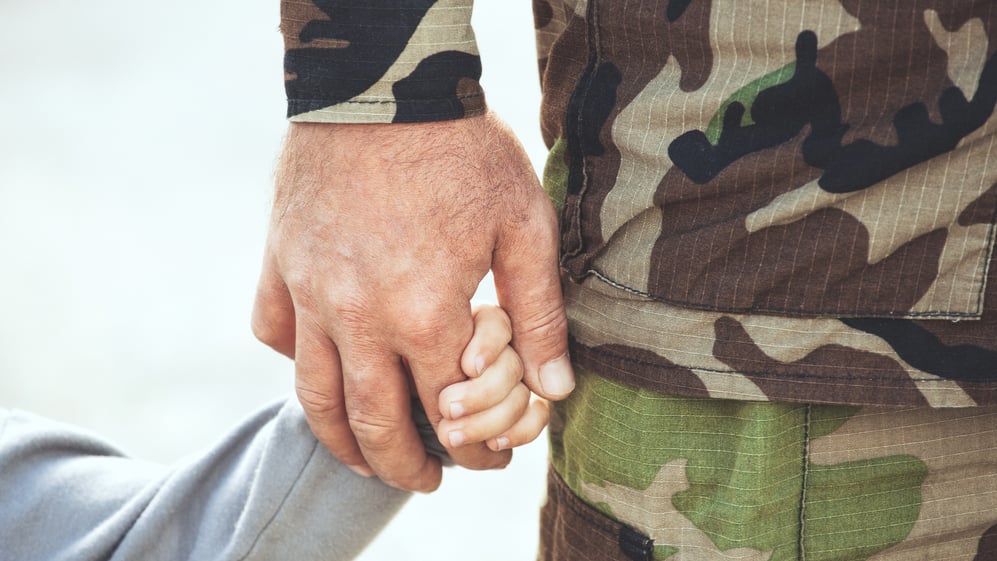Just as being humbled in life is unavoidable, so is living with change. If my new motto is “Be prepared; humbling will happen, and there’s nothing you can do about it,” then I might as well tack on another clause: “Oh yeah, and change happens too.”
The concept of change shouldn’t be an afterthought, but how often do we clutch our perceived life stability with a white-knuckled grip when change lurks nearby—and resist change so much that it sweeps us off our feet anyway? I know I engage in such white-knuckling often, so it can be helpful to remind myself that nothing on this earth lasts for long.
Opposite of Expected
For example, I thought our family had finally settled down in the Midwest—we had job stability, a wonderful church, and fantastic school situations for our children. Truly, we were poised to buy a house and finally put down some roots after a period of semi-transience in my husband’s ministry. Have a proper guest room and more than one bath. Establish family traditions that wouldn’t be disrupted by moving so much. Maybe even retire in the Midwest!
But that would turn out to be so not the case. As a new active-duty military family, we have recently signed on for exactly the opposite. We will, instead, be getting very cozy with change for the next twenty years or so—or whenever retirement happens.
So why do it, then? If we all tend to resist change so much, and if I had this so-close-I-can-taste-it goal of a rooted life where we were, what shifted for our family? Why choose the life of military chaplaincy?
There are two answers. But first, it may be beneficial to get into what military chaplaincy is.
What Is Military Chaplaincy?
I mean the reality beyond the more recognizable parts of it, such as counseling the military personnel under one’s care and leading church services in far-flung locales. Chaplaincy is such an interesting beast. It is like typical ministry in that a chaplain preaches, teaches, and administers the Sacraments. It is like typical ministry in that a chaplain (and his family) go where told without much personal input.
But it is very unlike typical ministry too. The call to become a chaplain doesn’t function in the same way; a pastor can’t simply become a chaplain and get plopped in the lap of a military branch at the whim of the Synod. A pastor must choose this route, much like a mission worker might choose to serve the Church by helping others and teaching abroad. But even then, chaplaincy is unlike mission work—missionary families generally get to stay together, whereas an active-duty chaplain deploys without his family for months at a time.
So really. Really. Why? If you’re scratching your head, I don’t blame you.
Discerning the Call
The first answer is this: we discerned the call. It was a complicated discernment, but it came about because we acknowledged my husband’s deep passion for the work, discussed it a lot, and learned how necessary full-time chaplains are (from a few key people who have served in this way and advocate for this need tirelessly within the Synod).
This feeds into the second and more compelling answer: the work chaplains do is heavy and important. There is an immediacy to a chaplain’s work that isn’t always present in a congregational setting—and a sometimes life-or-death scope to it that begs for the grace, mercy, and peace of God to be on hand in the person of one of His representatives. Here, in the Navy chaplain’s workplace, the holy and the secular collide in tight nautical confines. The latter often calls upon the former for help and guidance where it may not in a nonmilitary context. This mission field is vast, and there is a ripe harvest to reap—even at sea.
Serving like Paul
So is it worth weathering the ever-shifting winds of change?
Yes, even if life won’t be rooted and comfortable and easy.
Yes.
It reminds me of the apostle Paul. Granted, Paul was not in the military, but he did find himself in a life-or-death situation that begged for the mercy of God in tight nautical confines among secular sailors and soldiers. He was sailing to Rome for a prison transfer, and the weather was violent. As a representative of Christ, Paul advised, comforted, and cared for the physical bodies of each of the sailors—a de facto chaplain (see Acts 27).
Paul is also probably the best example of serving where the need is and not making an idol of one’s own comfort. I mean, the man was shipwrecked—among other things—but was unswerving in his ministry and willing to go where God moved him.
Maybe he had dreamed of putting down roots at one point too.
Praying for the Unexpected
So it’s not just a call for my husband, even if a chaplain’s work is desperately necessary. It’s a family’s call to do something hard for the sake of the Gospel. To live with change lurking around every corner. To get comfortable with the unexpected. To sacrifice—but knowing that Jesus sacrificed all for us. To let the Lord loosen our white-knuckled grasp and give us the only stability we need to support this heavy work—His love and provision.
I pray that you, too, would serve where you are needed. May such service include supporting the heavy work of LCMS chaplains when you come upon the opportunity: being the hands and feet of God for them—praying for them, their families, and those they serve.
There is not only one thing you are meant to do with your life. God calls you in numerous ways according to His plan for you.













